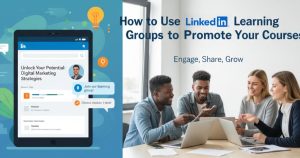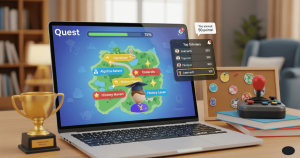How AI Transforms Course Marketing Through Smart Personalization
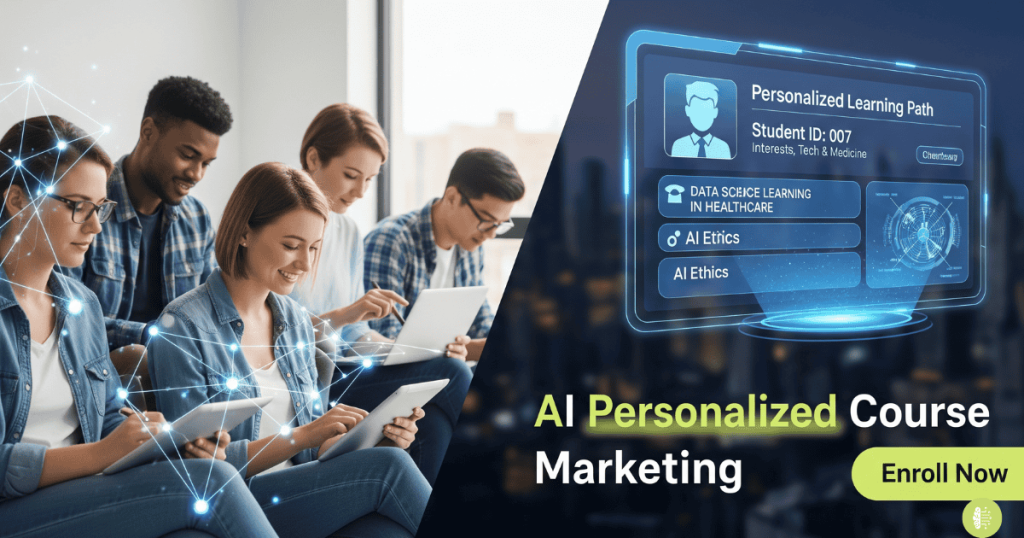
The online education market has exploded, with millions of courses competing for student attention. Course creators face a daunting challenge: how do you cut through the noise and connect with the right learners at the right time? The answer lies in AI personalized course marketing—a revolutionary approach that tailors every touchpoint to individual student needs and preferences.
Gone are the days of one-size-fits-all marketing campaigns that cast a wide net and hope for the best. Modern learners expect personalized experiences that speak directly to their goals, learning style, and current skill level. They want to feel understood, not marketed to with generic messages that could apply to anyone.
This shift has created an unprecedented opportunity for course creators who embrace online course personalization strategies. By leveraging artificial intelligence, you can deliver the right message to the right student at precisely the right moment in their learning journey. The result? Higher conversion rates, improved student satisfaction, and sustainable business growth that scales without losing the personal touch.
The Foundation of AI-Driven Student Targeting
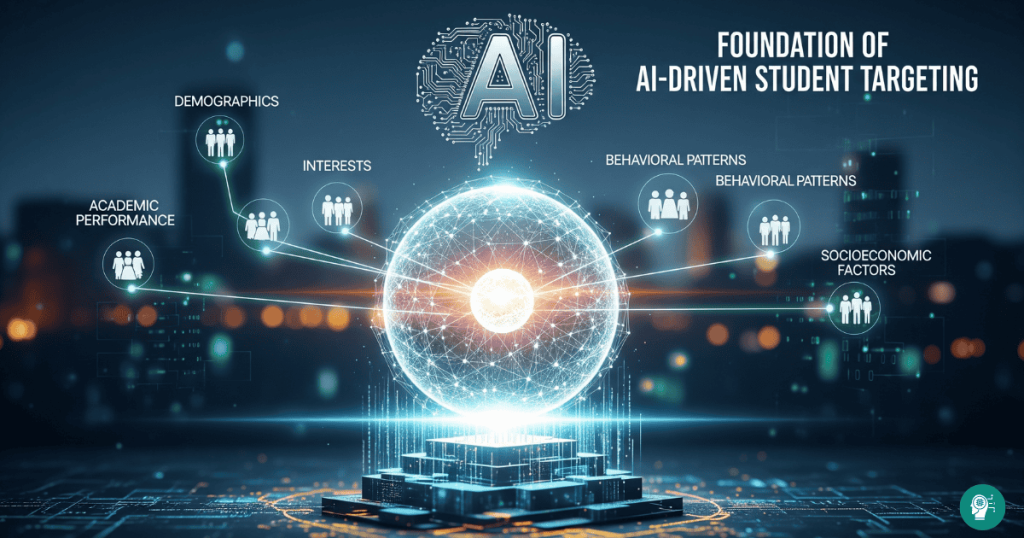
Understanding your students goes far beyond basic demographics like age and location. AI in eLearning marketing analyzes behavioral patterns, learning preferences, engagement history, and even the time of day students are most likely to take action. This creates rich student profiles that inform every marketing decision.
Machine learning algorithms process thousands of data points to identify patterns humans might miss. For example, students who browse course materials for more than three minutes but don’t enroll within 48 hours often respond well to social proof messaging. Those who abandon their cart during checkout might need payment plan options or additional course previews.
The power of AI-driven student targeting lies in its ability to continuously learn and adapt. Each interaction provides new data that refines the targeting accuracy. A student who initially showed interest in beginner content but quickly moved to intermediate topics signals a different learning trajectory than someone who spends weeks on foundational concepts.
Building Personalized Student Journeys That Convert
Creating effective personalized student journeys requires mapping the entire experience from first touchpoint to course completion. AI analyzes where students enter your funnel, what content resonates with them, and which obstacles prevent enrollment.
Consider Sarah, a working professional interested in data science. Traditional marketing might show her the same generic landing page as everyone else. With AI personalization, she sees success stories from other working professionals, scheduling options for evening classes, and content that addresses her specific career transition concerns.
The journey doesn’t end at enrollment. Post-purchase personalization ensures students stay engaged throughout the course. AI can identify when engagement drops and trigger personalized interventions—perhaps suggesting study groups for social learners or offering additional practice exercises for those struggling with specific concepts.
Dynamic content adaptation means each touchpoint evolves based on student behavior. Email sequences adjust their tone and focus based on engagement patterns. Landing pages highlight different benefits depending on the visitor’s browsing history. Course recommendations become increasingly accurate as the system learns student preferences.
Tailored Course Recommendations Through Machine Learning
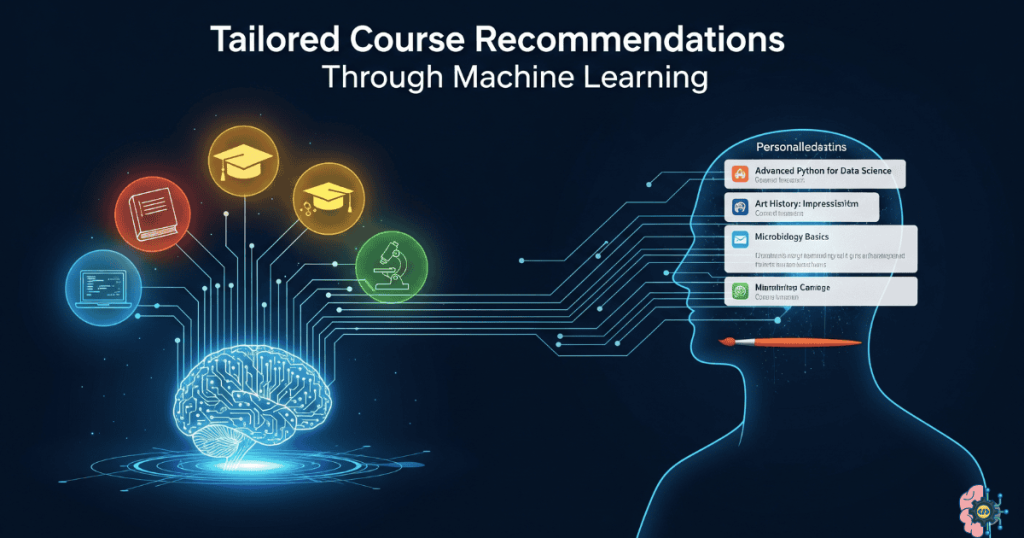
Machine learning in course promotion goes beyond simple “students also bought” suggestions. Advanced recommendation engines consider learning objectives, skill gaps, career goals, and even learning pace to suggest the most relevant courses.
The recommendation system analyzes successful learning paths from similar students. If students with Sarah’s background typically succeed by taking Course A before Course B, the system will recommend that sequence. This predictive approach improves completion rates and student satisfaction.
Real-time recommendation updates respond to changing student needs. A student initially interested in basic web development who shows strong aptitude might receive recommendations for advanced JavaScript courses sooner than originally planned. The system recognizes accelerated learning patterns and adjusts accordingly.
Cross-selling and upselling become natural extensions of the learning journey rather than pushy sales tactics. When students demonstrate mastery of foundational concepts, the AI suggests logical next steps that align with their stated goals and learning patterns.
Implementing Adaptive Learning Marketing Strategies
Adaptive learning marketing adjusts campaigns in real-time based on performance data and student feedback. Unlike traditional A/B testing that might take weeks to show results, AI-powered systems optimize continuously throughout the day.
Campaign performance varies significantly across different student segments. Working professionals might engage more with content during lunch breaks and evenings, while students show higher engagement during afternoon hours. AI scheduling ensures messages reach each segment at optimal times.
Budget allocation becomes more efficient when AI identifies the highest-converting audience segments. Instead of spreading marketing spend evenly across all channels, resources flow to the platforms and messaging that generate the best results for each student type.
Content creation scales through AI assistance while maintaining personalization. The system can generate variations of successful marketing messages, test different emotional appeals, and optimize subject lines for different audience segments simultaneously.
Advanced Personalization Techniques for Course Creators
Behavioral trigger campaigns respond to specific student actions with relevant messaging. When someone downloads a free resource, they receive a sequence tailored to that topic. Cart abandoners get different messages than students who completed a course but haven’t enrolled in the next level.
Predictive analytics for course sales helps identify students most likely to enroll before they even express explicit interest. The system recognizes patterns in browsing behavior, content engagement, and demographic factors that correlate with successful conversions.
Dynamic pricing strategies can personalize offers based on individual student circumstances. International students might see purchasing power parity pricing, while corporate learners could receive bulk discount options automatically.
Customized learning paths extend beyond course content to marketing touchpoints. Students who prefer video content receive more video-based marketing materials, while reading-oriented learners get detailed written resources and case studies.
Overcoming Common Personalization Challenges
Data privacy concerns require transparent communication about how student information is collected and used. Successful personalization builds on trust, and students need to understand the value they receive in exchange for their data.
Technology integration can seem overwhelming for course creators without technical backgrounds. Many AI personalization platforms offer user-friendly interfaces that don’t require coding skills. Start with simple segmentation and gradually implement more advanced features as you become comfortable with the system.
Content creation at scale while maintaining quality requires strategic planning. Develop templates and frameworks that allow for personalization without starting from scratch for each variation. AI can help generate content variations, but human oversight ensures quality and brand consistency.
Measuring success across personalized campaigns requires tracking metrics beyond simple conversion rates. Look at engagement quality, student satisfaction scores, completion rates, and long-term student value to assess the true impact of personalization efforts.
Data-Driven Course Marketing Strategies That Scale
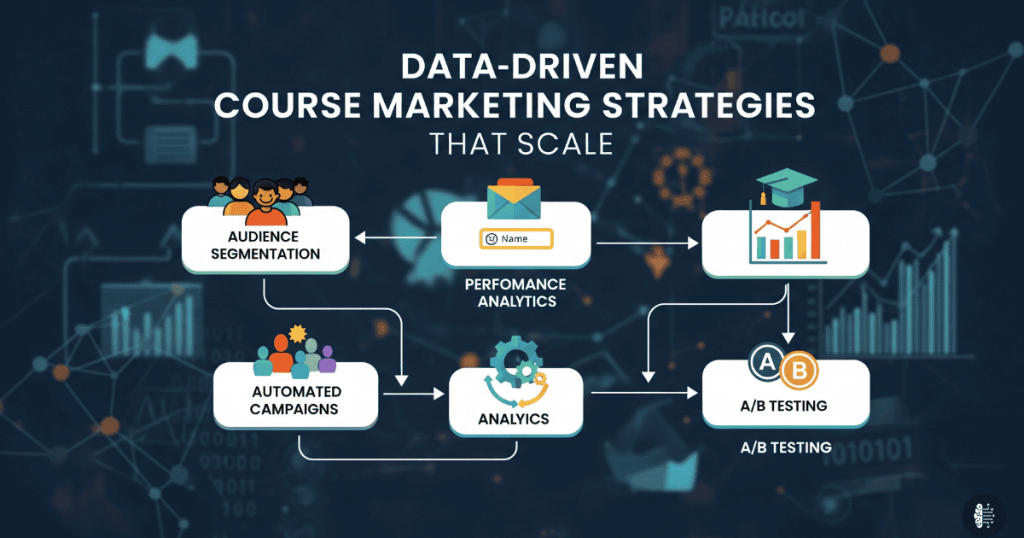
Successful scaling requires systematic data collection and analysis. Track not just what students do, but when and why they take specific actions. This behavioral data feeds back into the AI system to improve future personalization efforts.
Integration across marketing channels ensures consistent messaging while allowing for platform-specific optimization. A student’s email engagement history should inform their social media ad experience, and website behavior should influence email content recommendations.
Automation handles routine personalization tasks while preserving human creativity for strategy and relationship building. AI can manage email sequences, ad targeting, and content recommendations while humans focus on creating compelling course content and building community.
Performance monitoring identifies successful personalization tactics that can be replicated across different courses and student segments. What works for professional development courses might need adaptation for creative skills training, but core principles often apply broadly.
Measuring the Impact of AI Personalization
Success metrics for personalized marketing campaigns go beyond traditional conversion rates. Engagement quality, measured through time spent with content and interaction depth, provides insight into message relevance and student interest.
Student lifetime value increases when personalization creates more relevant learning experiences. Students who feel understood and supported are more likely to enroll in additional courses and recommend them to others.
Conversion rate improvements often appear gradually as the AI system learns and optimizes. Early results might show modest gains, but performance typically improves significantly as the system processes more data and identifies refined patterns.
Cost per acquisition tends to decrease as targeting becomes more precise. Rather than paying to reach broad audiences with limited interest, personalized campaigns focus spending on students most likely to enroll and succeed.
Building Your AI-Powered Marketing Future
The future of course marketing belongs to creators who embrace personalization without losing sight of authentic human connection. AI handles the complex data analysis and optimization tasks, freeing educators to focus on what they do best—creating transformative learning experiences.
Start implementing AI personalized course marketing with small experiments rather than comprehensive overhauls. Test personalized email subject lines, segment your audience based on engagement patterns, or experiment with dynamic landing page content. Each small win builds confidence and demonstrates value.
The technology continues evolving rapidly, but the core principle remains constant: students want to feel understood and supported throughout their learning journey. AI simply makes it possible to deliver that personalized experience at scale without sacrificing quality or authenticity.
Success in online education increasingly depends on your ability to connect with individual students amid the growing sea of course options. Those who master online course personalization strategies will build sustainable, thriving businesses that truly serve their students’ needs while achieving their own growth objectives.


